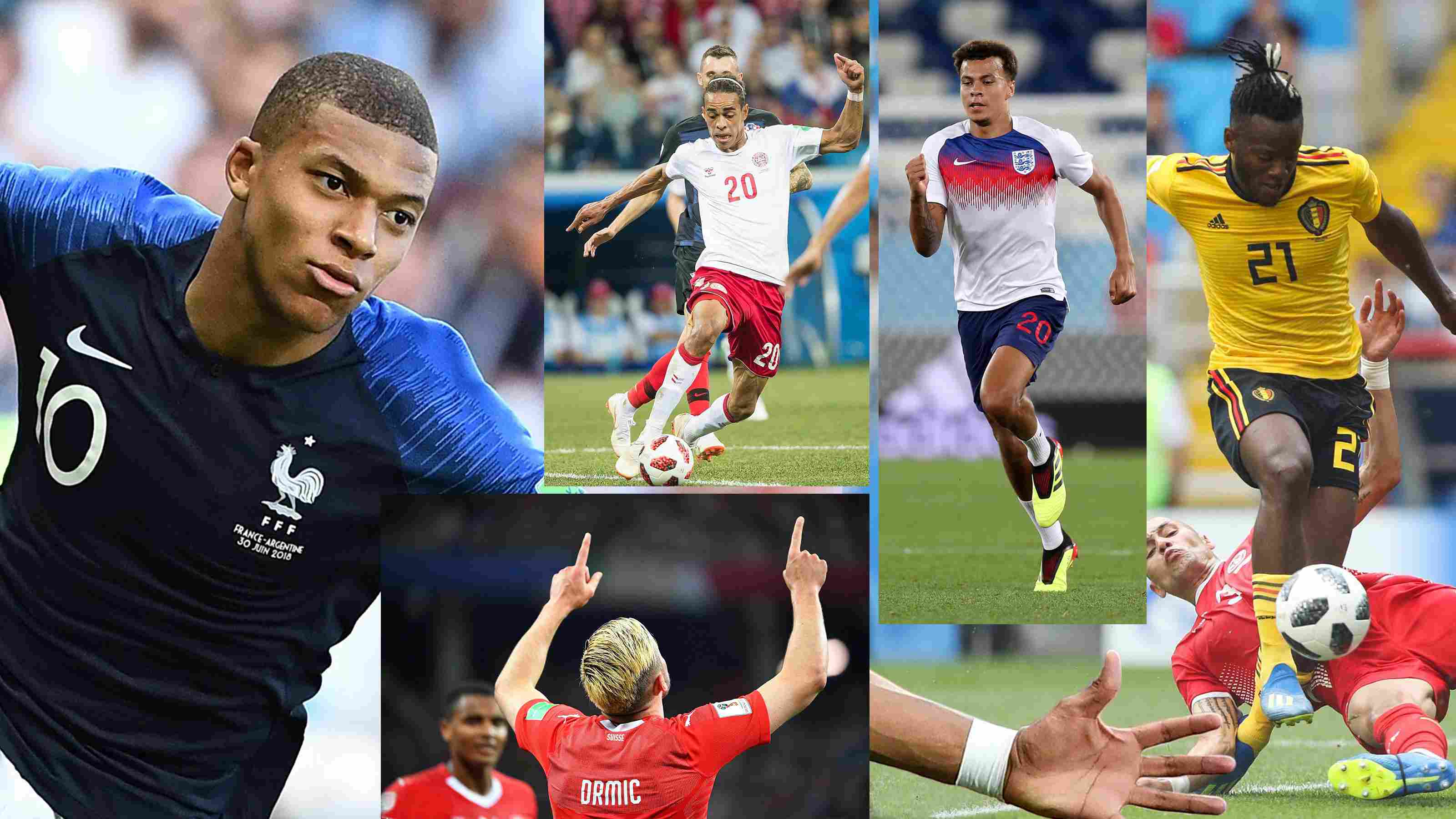While voices demanding stricter migration policies and tighter borders have grown increasingly loud in Europe, much of the continent – and the world – has also been cheering on teams at the World Cup whose stars include players with a migration background.
So how big a role have they played in the tournament and what has it meant for their teams and countries?
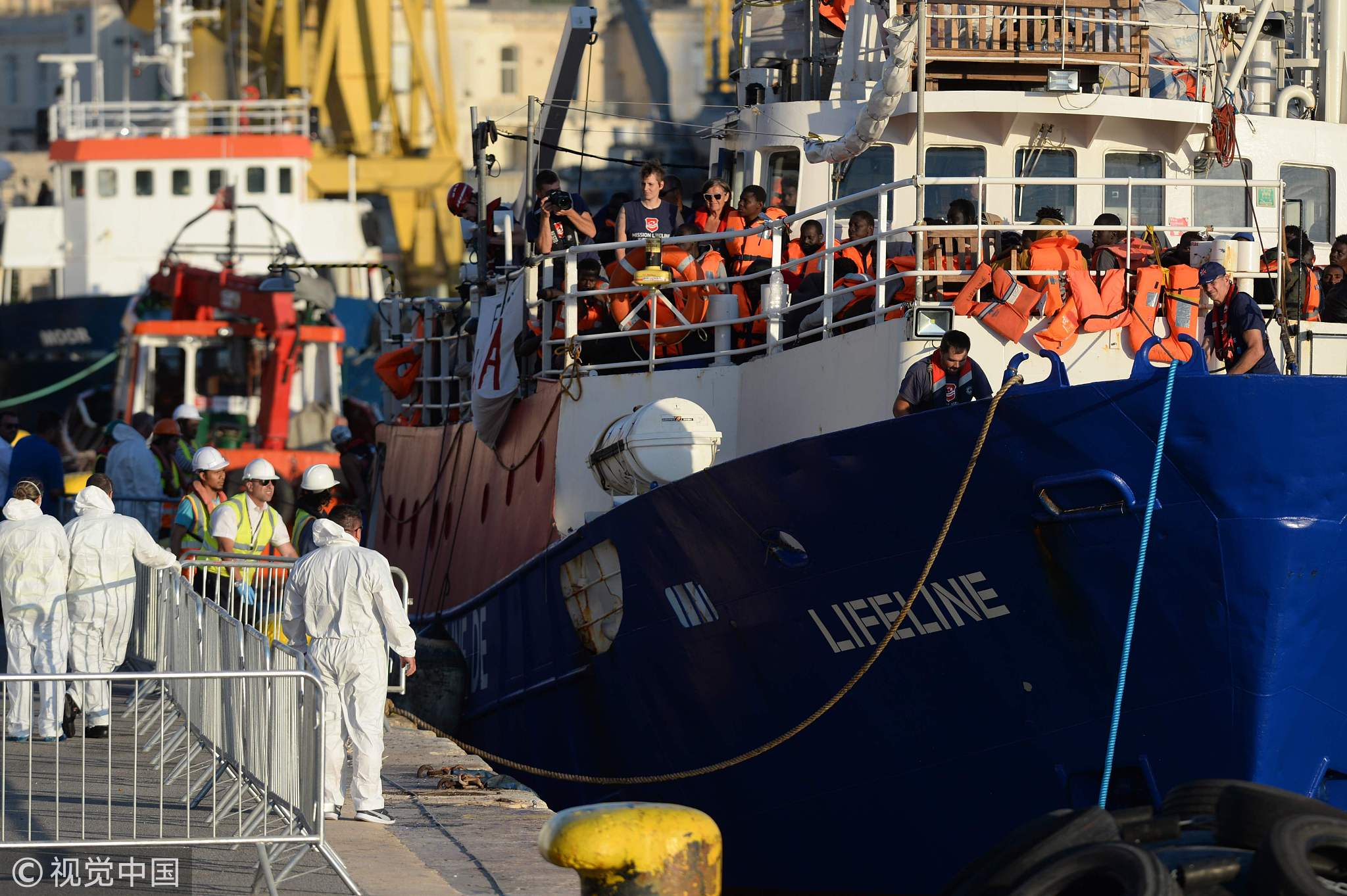
The 'MV Lifeline', a vessel for the German charity Mission Lifeline, arrives with 234 migrants onboard in the harbour of Valletta, Malta, June 27, 2018. /VCG Photo
The 'MV Lifeline', a vessel for the German charity Mission Lifeline, arrives with 234 migrants onboard in the harbour of Valletta, Malta, June 27, 2018. /VCG Photo
In recent weeks, the question of what to do with migrants seeking to reach Europe’s shores has again dominated headlines: politicians have been talking of cracking down on illegal immigration, while ships loaded with rescued refugees have been left in limbo for days waiting for a port to dock.
Beyond fears of illegal migrants swamping Europe, nationalist and protectionist rhetoric targeting foreigners has also been making the rounds.
Yet at the World Cup in Russia, players with a foreign background who immigrated from another country or whose parents or grandparents once fled conflict, have been celebrated as stars on the pitch.
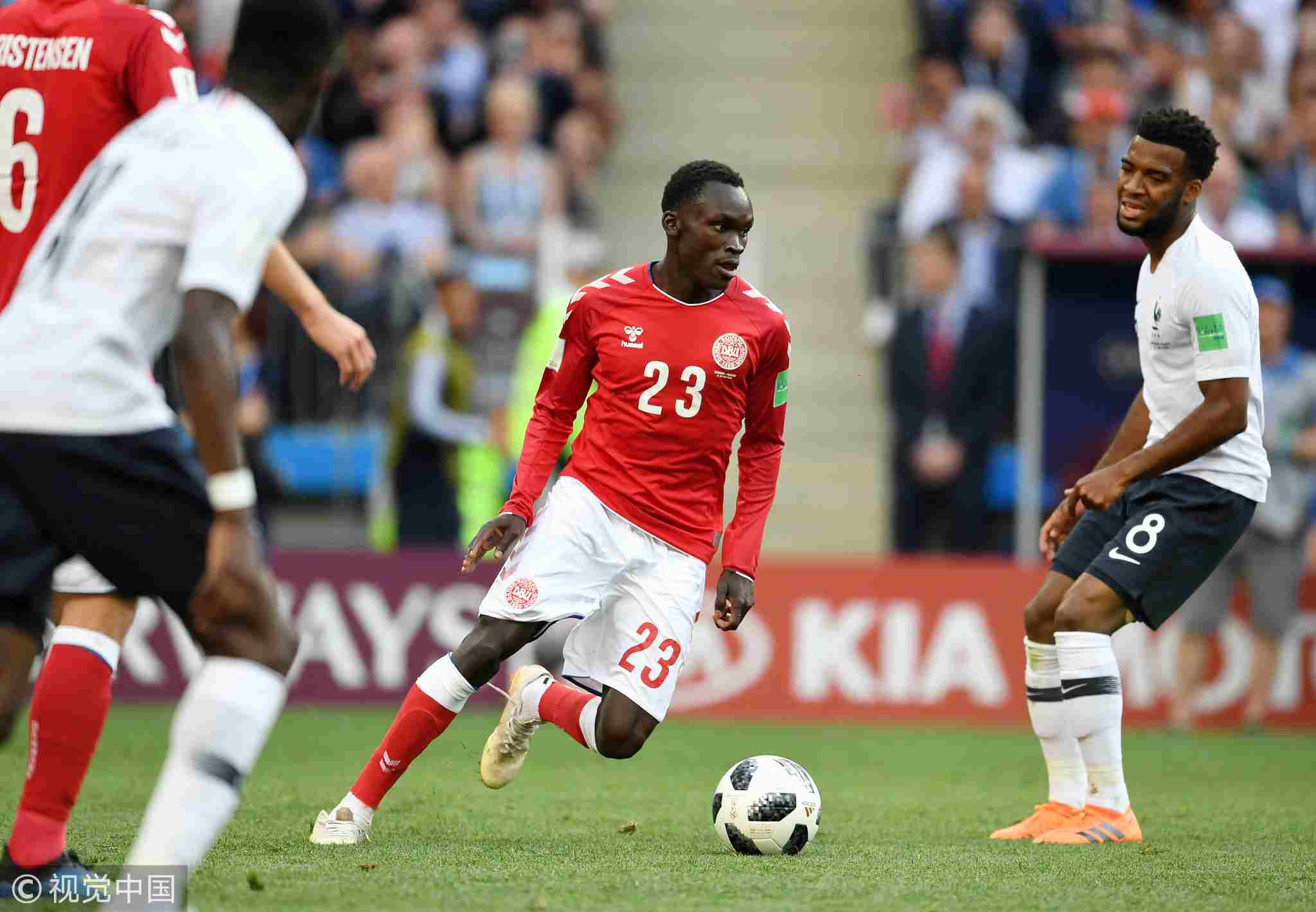
Pione Sisto of Denmark controls the ball during the 2018 FIFA World Cup Russia group C match between Denmark and France at Luzhniki Stadium in Moscow, Russia, June 26, 2018. /VCG Photo
Pione Sisto of Denmark controls the ball during the 2018 FIFA World Cup Russia group C match between Denmark and France at Luzhniki Stadium in Moscow, Russia, June 26, 2018. /VCG Photo
This includes Denmark’s Pione Sisto, who arrived in the country as a baby with his South Sudanese refugee parents, Switzerland’s Valon Behrami, whose family were asylum-seekers from Kosovo in the 1990s, or France’s Blaise Matuidi, whose parents fled the civil war in Angola in the 1980s.
One in six
Out of 736 players at the start of this year’s tournament, 13.2 percent were foreign-born, more than ever before, according to statistics portal Statista.
Morocco, eliminated in the group stage, topped the ranking with 17 out of 23 players born outside the country – mostly in France and the Netherlands, but also in Spain, Belgium and Canada – according to a poll by Euronews.

Adnan Januzaj of Belgium scores his team's first goal past Jordan Pickford of England during the 2018 FIFA World Cup Russia group G match between England and Belgium in Kaliningrad, Russia, June 28, 2018. /VCG Photo
Adnan Januzaj of Belgium scores his team's first goal past Jordan Pickford of England during the 2018 FIFA World Cup Russia group G match between England and Belgium in Kaliningrad, Russia, June 28, 2018. /VCG Photo
This did not include those born in the country but whose parents or grandparents immigrated from elsewhere.
A rough tally by CGTN showed about one in six players at the World Cup had some migration background, having been born abroad or having at least one parent of foreign descent.
From France’s Paul Pogba and Belgium’s Romelu Lukaku to Germany's Jerome Boateng, England’s Dele Alli and Denmark’s Yussuf Yurary Poulsen, the line-ups of Western European teams – countries where the migrant debate has been raging – have featured distinctly exotic names.
Albanian eagle
Far from hiding their origins, some players have proudly displayed their ties to their country of origin during the tournament.
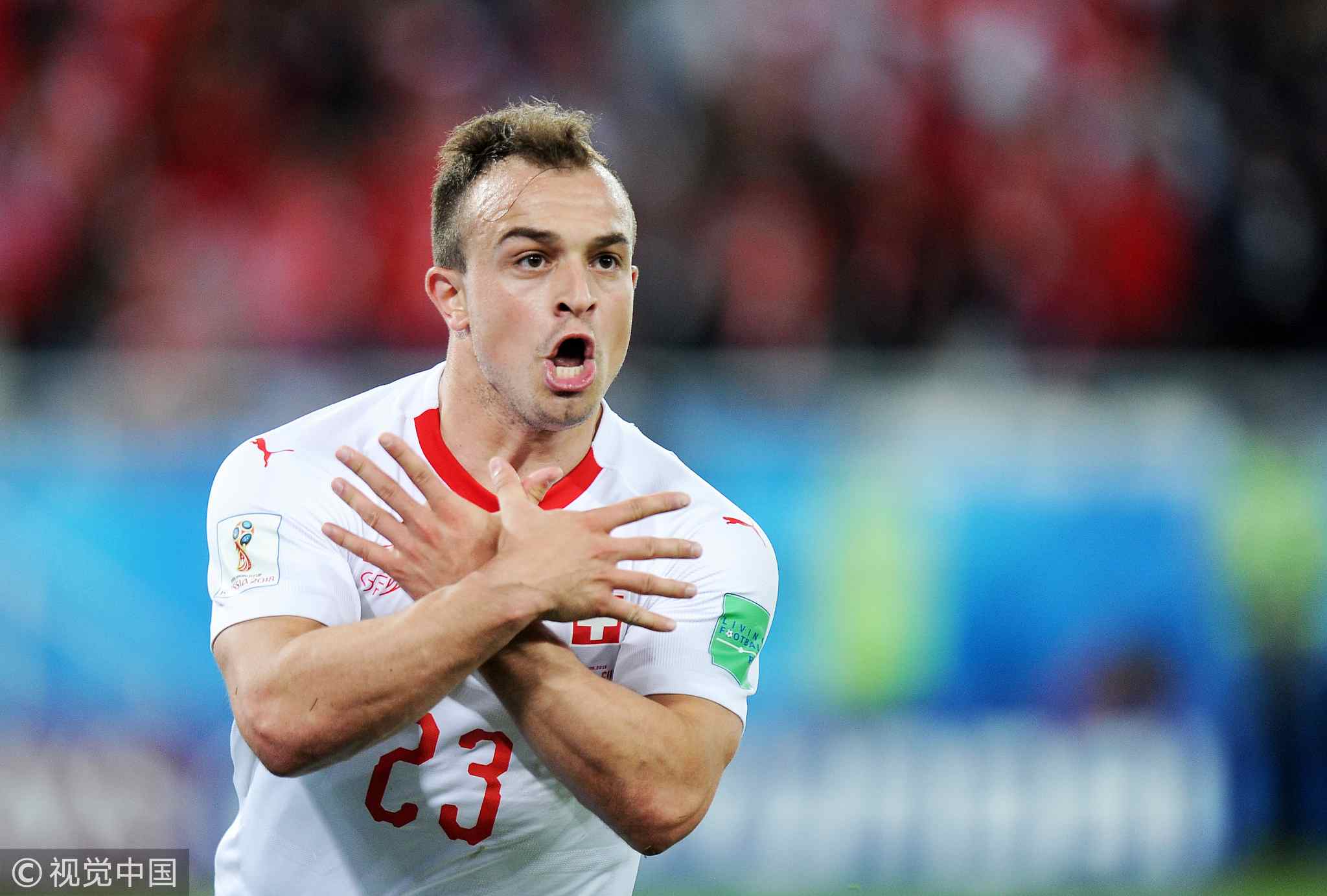
Xherdan Shaqiri of Switzerland celebrates scoring a goal during the 2018 FIFA World Cup match between Serbia and Switzerland in Kaliningrad, Russia, June 22, 2018. /VCG Photo
Xherdan Shaqiri of Switzerland celebrates scoring a goal during the 2018 FIFA World Cup match between Serbia and Switzerland in Kaliningrad, Russia, June 22, 2018. /VCG Photo
Most notably, Swiss players Xherdan Shaqiri and Granit Xhaka made a hand gesture representing a double-headed eagle – the Albanian national symbol – after scoring against Serbia on June 22, a move that saw them fined by FIFA for being "provocative." Both players have roots in ethnic Albanian Kosovo.
In response, people in Albania reportedly rushed to collect money to help pay the players' fines and Albanian Prime Minister Edi Rama even opened a bank account for that purpose, called "Don’t be afraid of the eagle."
This was a gesture of “thanks and gratitude to the two sportsmen” who brought joy to millions of Albanians, Rama said in a Facebook post.
Fan abuse
Not all gestures were greeted as positively however.
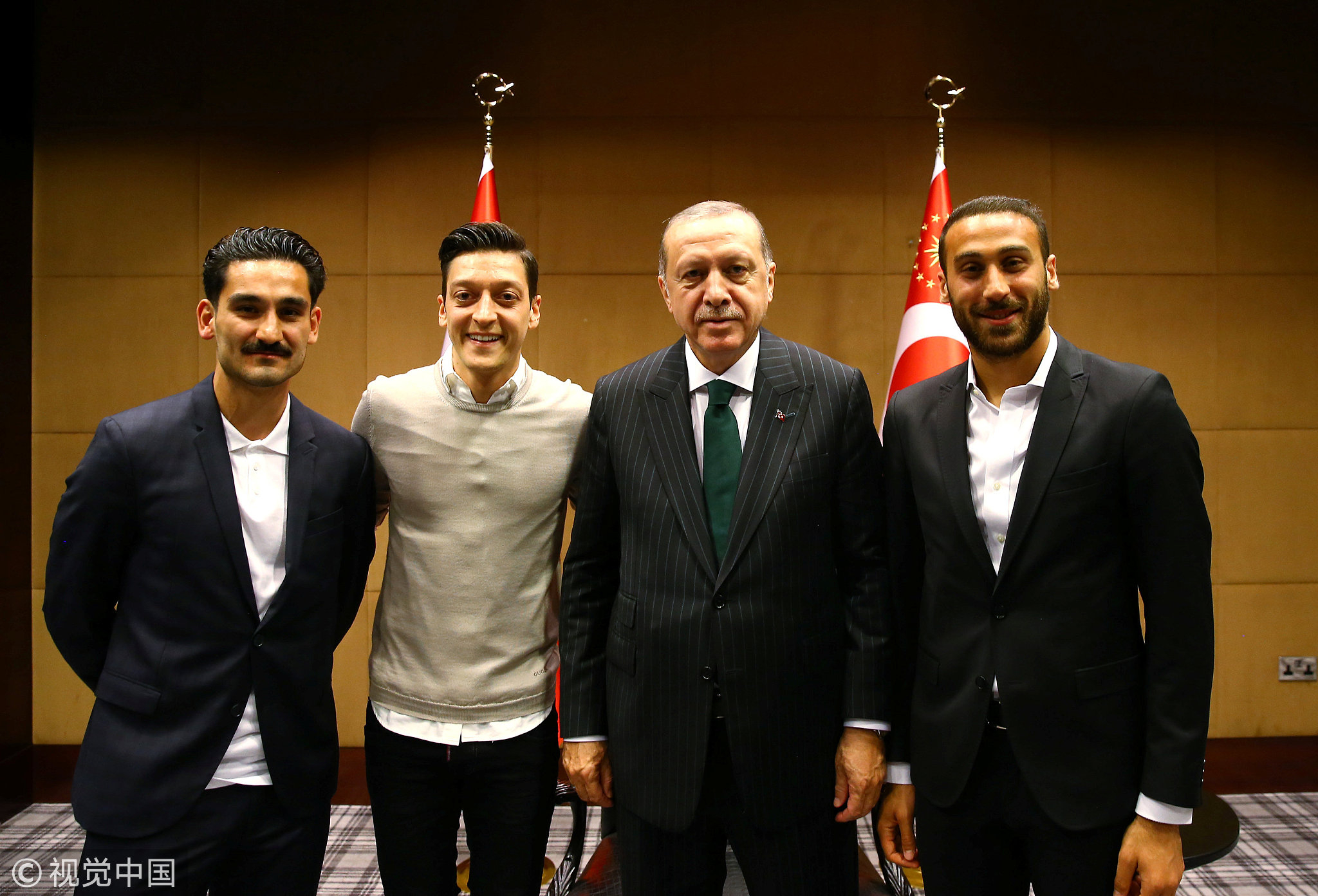
Turkish President Tayyip Erdogan meets with Premier League soccer players Ilkay Guendogan of Manchester City, Mesut Oezil of Arsenal and Cenk Tosun of Everton in London, May 13, 2018. /VCG Photo
Turkish President Tayyip Erdogan meets with Premier League soccer players Ilkay Guendogan of Manchester City, Mesut Oezil of Arsenal and Cenk Tosun of Everton in London, May 13, 2018. /VCG Photo
Germany’s Mesut Oezil and Ilkay Guendogan – two players of Turkish descent – received a torrent of abuse from fans online and some politicians after they were photographed with Turkish President Recep Tayyip Erdogan before the tournament.
Meanwhile, Swedish midfielder Jimmy Durmaz found himself on the receiving end of racist abuse after facilitating a goal by Germany when the two sides met on June 23.
Durmaz, whose parents emigrated from Turkey but who was born in Sweden, said he was called “an Arab devil, a terrorist, Taliban.”
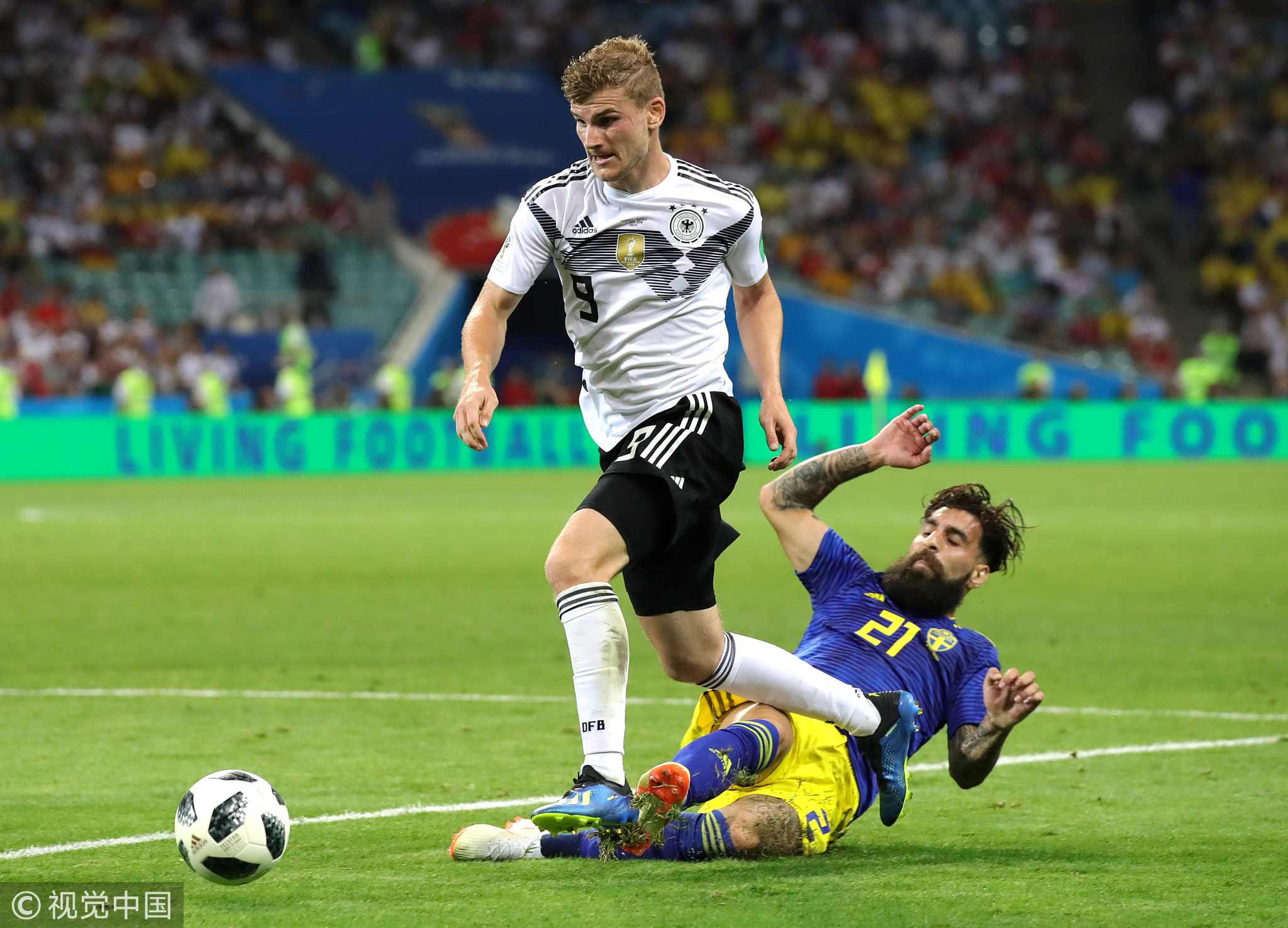
Timo Werner of Germany gets fouled by Jimmy Durmaz of Sweden during the 2018 FIFA World Cup Russia group F match between Germany and Sweden at Fisht Stadium in Sochi, Russia, June 23, 2018. /VCG Photo
Timo Werner of Germany gets fouled by Jimmy Durmaz of Sweden during the 2018 FIFA World Cup Russia group F match between Germany and Sweden at Fisht Stadium in Sochi, Russia, June 23, 2018. /VCG Photo
Players with a migration background have been at pains to show their allegiance to their country of adoption, even while acknowledging their roots.
"I am Swedish and am proud to play for Sweden. I will never let any racists destroy that pride,” Durmaz said following the attacks against him.
Oezil and Guendogan meanwhile met with German President Frank-Walter Steinmeier to explain their snapshots with Erdogan.
"Homeland also exists in the plural. A person can have more than one homeland," Steinmeier said after the meeting.
'We need more migrants'
For the most part however, players' backgrounds have seemed to make little difference to football-crazed fans who have rallied behind their national team, regardless of birthplace or country of origin.
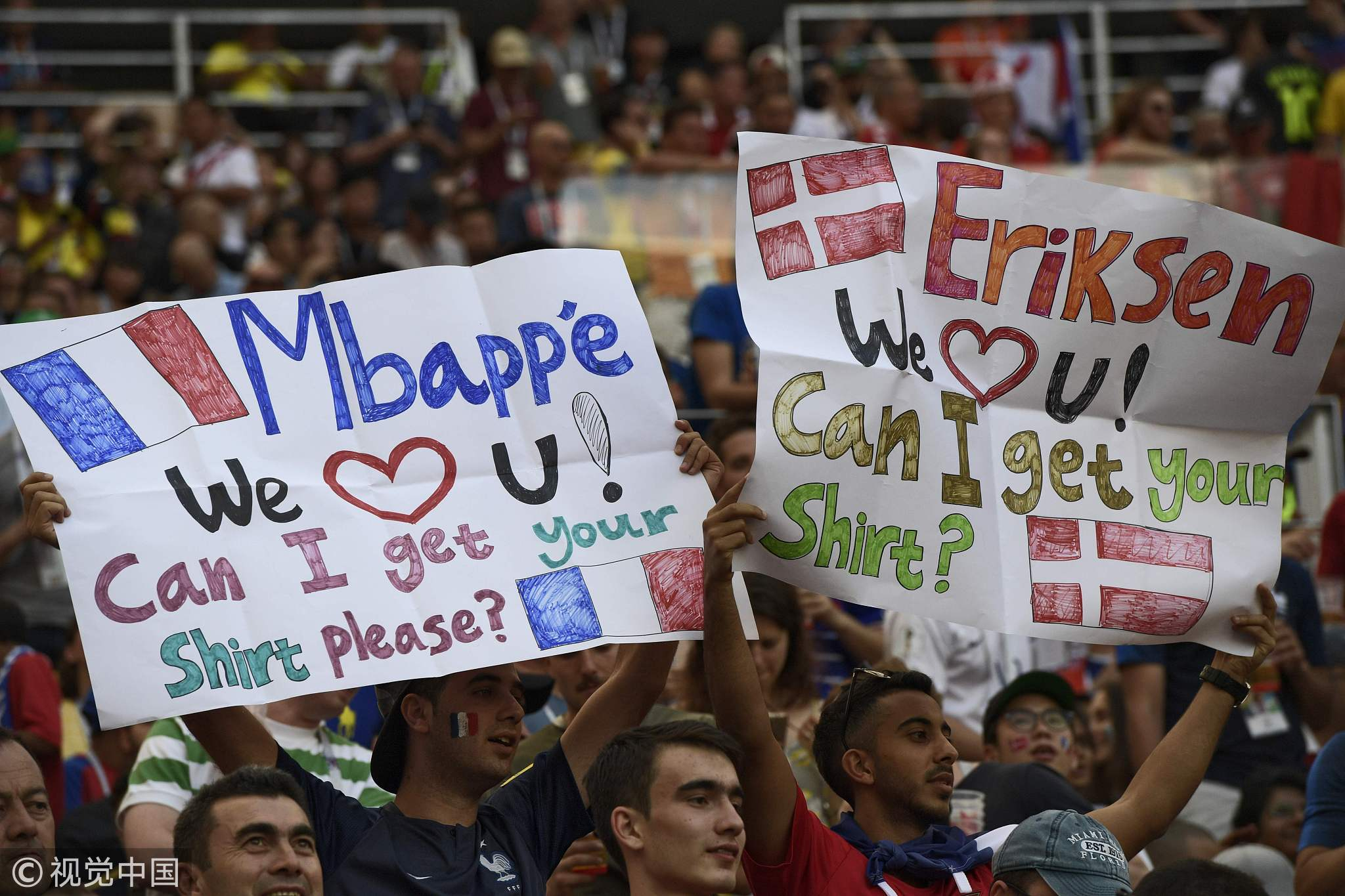
Fans brandish placards of their favorite players during the Russia 2018 World Cup Group C football match between Denmark and France at the Luzhniki Stadium in Moscow, Russia, June 26, 2018. /VCG Photo
Fans brandish placards of their favorite players during the Russia 2018 World Cup Group C football match between Denmark and France at the Luzhniki Stadium in Moscow, Russia, June 26, 2018. /VCG Photo
At least 17 goals so far have been scored by players of foreign background.
Meanwhile, 19-year-old Kylian Mbappe – of Cameroonian and Algerian descent – has been lavished with praise after helping France into the quarter-finals with two goals against Argentina, with French and international press calling him "extraordinary," a "phenomenon" and a "superstar."
Halfway through the tournament, it seems diversity has helped teams: Switzerland, Belgium and France – all featuring at least 10 players with migration background – made it convincingly into the last 16, past more homogenous teams like Iceland, Poland or Peru.
A cartoon in the German weekly Der Spiegel after the country was eliminated in the group stage seemed to agree this was the source of the team’s woes. Amid despairing fans, one turns to another: "We need more migrants in the German team!"
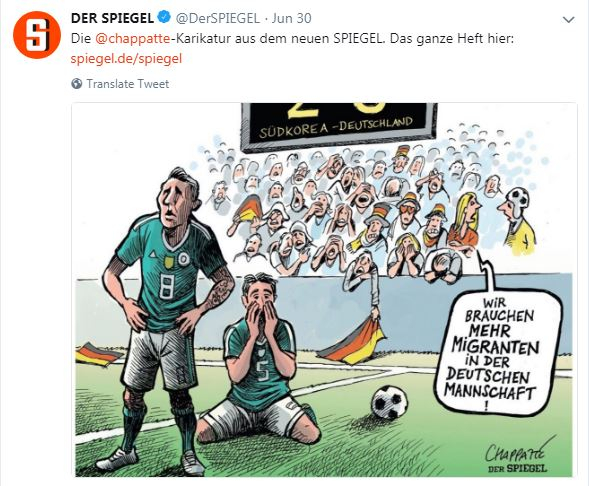
'We need more migrants in the German team' - cartoon by Chappatte in Der Spiegel. /CGTN screenshot of Twitter
'We need more migrants in the German team' - cartoon by Chappatte in Der Spiegel. /CGTN screenshot of Twitter
(Top picture: CGTN collage showing, clockwise from left, France's Kylian Mbappe, Denmark's Yussuf Yurary Poulsen, England's Dele Alli, Belgium's Michy Batshuayi and Switzerland's Josip Drmic. /VCG Photo)

